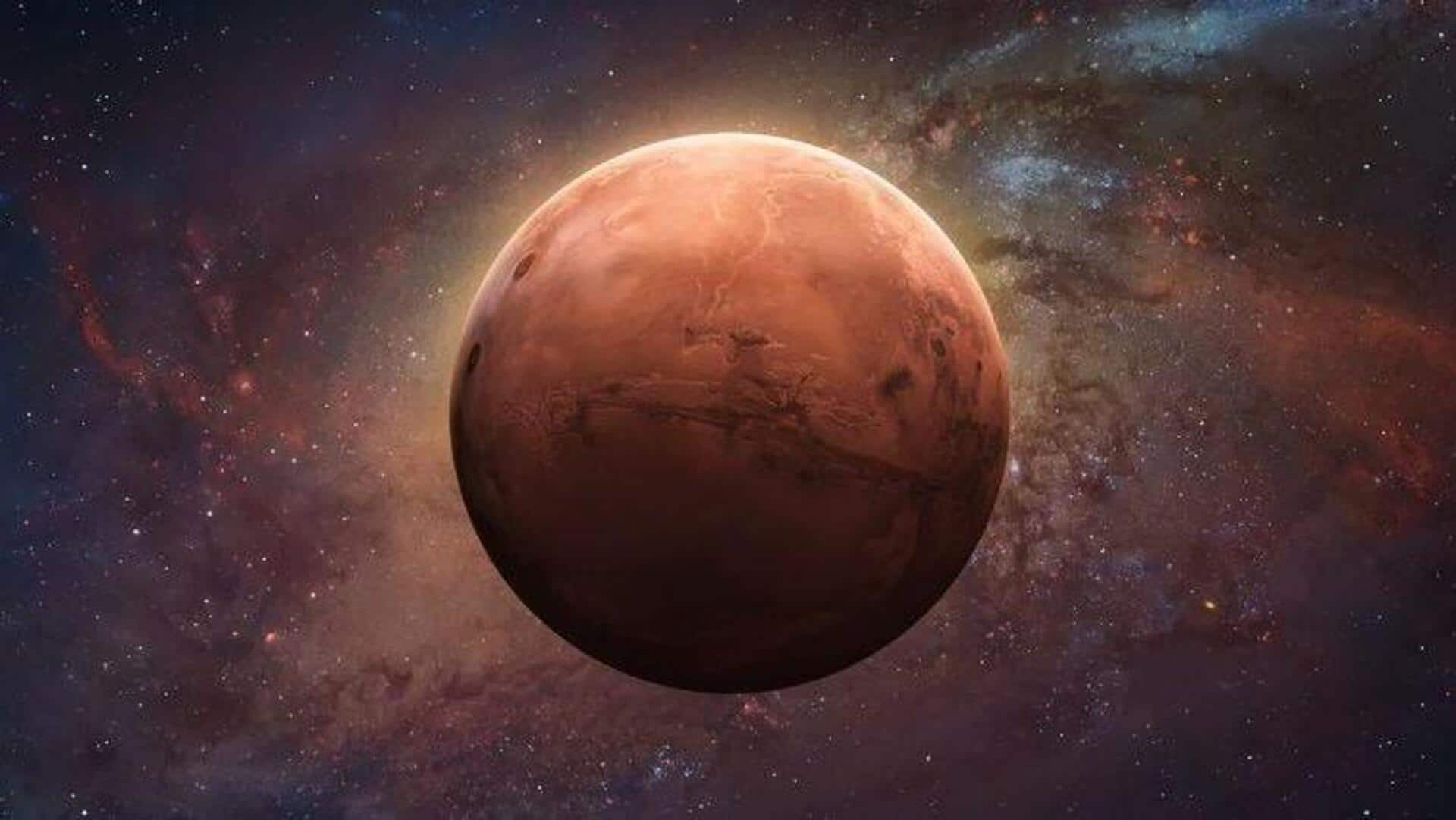4.5 billion-year-old mineral hints at hot water activity on Mars
What's the story
A 4.45 billion-year-old zircon grain, extracted from a Martian meteorite, that was found in the Sahara in 2011, has revealed new details about the Red Planet's past.
The study, conducted by researchers from Perth's Curtin University, indicates that Mars once had boiling hydrothermal systems like Earth's volcanoes.
This also means that the planet may have been habitable at some point in its history and could have supported microbial life.
Geological history
'Black Beauty' meteorite offers unique insights
The research team analyzed meteorites from a space rock named NWA7034, or 'Black Beauty.'
Unlike most Martian meteorites, which are mostly igneous or mantle rocks, these offer unique insights into Mars's geological history.
Aaron Cavosie, a planetary scientist from Curtin University's Space Science and Technology Centre in Australia, said Black Beauty is unique as it is a regolith sample from Mars's surface and contains hundreds of rock and mineral fragments from different sources across the planet.
Geological clues
Zircon grain analysis reveals hot water on Mars
About 20 meteorites discovered on Earth are thought to have come from Mars during the impact that brought the original Black Beauty stone here.
A minuscule zircon grain inside one of these meteorites, studied for the first time in 2022, provided clues about Mars's early crust formation and preserved evidence of past meteorite impacts.
Cavosie said these meteorites offer valuable clues to reconstruct Mars's geological history.
Elemental analysis
Element patterns hint at Mars's early history
The research team studied the Martian zircon grain's trace elements to gain insight into its early history.
Researchers used nano-scale geochemistry to uncover evidence of hot water on Mars 4.45 billion years ago.
They also detected element patterns in zircon, like sodium, iron, yttrium, as well as aluminum.
These patterns revealed that these elements were incorporated into the grain as it grew.
"Hydrothermal systems were essential for life on Earth and our findings suggest Mars also had water," Cavosie said.
